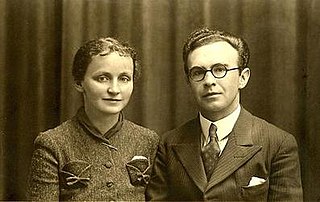
Richard Bentley was an English classical scholar, critic, and theologian. He was Master of Trinity College, Cambridge.

Richard Porson was an English classical scholar. He was the discoverer of Porson's Law. The Greek typeface Porson was based on his handwriting.

William Hepworth Thompson was an English classical scholar and Master of Trinity College, Cambridge.
Lewis Campbell was a Scottish classical scholar.

George Long was an English classical scholar.
Charles Edwin Bennett was an American classical scholar and the Goldwin Smith Professor of Latin at Cornell University. He is best remembered for his book New Latin Grammar, first published in 1895 and still in print today.
James Duport was an English classical scholar.
Arnold Wycombe Gomme was a British classical scholar, lecturer in ancient Greek and Greek history (1911–1945), professor of ancient Greek, University of Glasgow (1946–1957), Fellow of the British Academy (1947).
James Duff Duff, known as J. D. Duff, was a Scottish translator and classical scholar best known for his edition of Juvenal. He was a Cambridge Apostle.

John Gwyn Griffiths was a Welsh poet, Egyptologist and nationalist political activist who spent the largest span of his career lecturing at Swansea University.
George Waddington was an English priest, traveller and church historian.

Henry Jackson, was an English classicist. He served as the vice-master of Trinity College, Cambridge from 1914 to 1919, praelector in ancient philosophy from 1875 to 1906 and Regius Professor of Greek (Cambridge) at the University of Cambridge from 1906 to 1921. He was elected a Fellow of the British Academy in 1903. He was awarded the Order of Merit on 26 June 1908. From 1882 to 1892 he sat on the Council of the Senate of the University of Cambridge, and was an active member of a number of the university boards. He lived within the walls of Trinity College for over 50 years. Born in Sheffield, he lived mainly in Cambridge, but died in Bournemouth.
William Henry Balgarnie was a schoolmaster at Elmfield College, Woodbridge School and The Leys School, and was the inspiration for the character Mr Chips in the book Goodbye, Mr. Chips, written by one of his students at The Leys, James Hilton.
William Wyse was a classical scholar, noted for his work on the Attic orator Isaeus, and a benefactor of the University of Cambridge.
Robert Drew Hicks was a classical scholar, and a fellow of Trinity College, Cambridge.
Donald Struan Robertson, FBA was a classical scholar, particularly noted for his work on Apuleius, and for 22 years the Regius Professor of Greek at the University of Cambridge.
Alfred Chilton Pearson was an English classical scholar, noted for his work on Greek tragedy.
Edward Henry Blakeney was an English classical scholar and poet, born in Mitcham. He died in his hometown Winchester.
William Ramsay was a classical scholar.

Agnata Frances Butler was a British classical scholar. She was among the first generation of women to take the Classical Tripos examinations at the University of Cambridge, and was the only person to be placed in the top division of the first class at the end of her third year, in 1887. She married the Master of Trinity College, Montagu Butler, in August 1888, becoming the leading hostess in Cambridge. She published a version of Book VII of Herodotus' Histories in 1891.














